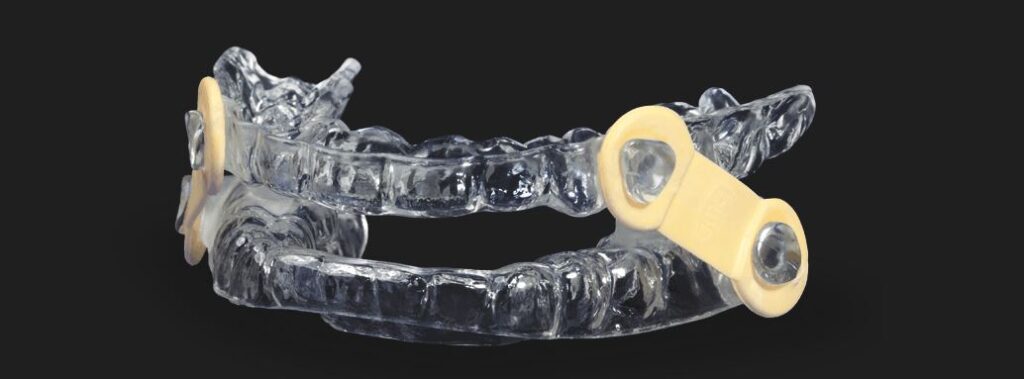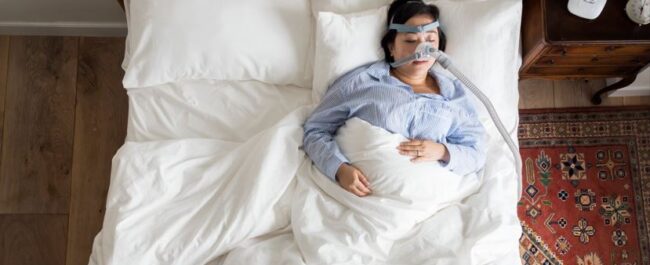The Benefits of Oral Appliances for Sleep Apnea: A Dental Perspective
Sleep apnea is a prevalent yet often undiagnosed condition affecting millions worldwide. Characterized by pauses in breathing during sleep, this disorder can lead to serious health complications, including cardiovascular issues, daytime fatigue, and impaired cognitive function. Improving sleep is a health imperative.
The two primary treatment options for sleep apnea are Continuous Positive Airway Pressure (CPAP) therapy and oral appliances. In this article, we will delve into the benefits of oral appliances provided by dentists, particularly focusing on how they compare to CPAP machines, and why they may be a preferable choice for many patients.
Understanding Sleep Apnea
Before exploring the treatment options, it’s crucial to understand sleep apnea. The most common form is Obstructive Sleep Apnea (OSA), where the airway becomes blocked during sleep, usually by the collapse of soft tissue in the back of the throat. Central Sleep Apnea (CSA), although less common, involves the brain failing to signal the muscles to breathe.
At Reflections Dental Oakville, we our team includes dental expertise in sleep dentistry and can provide oral appliances to treat the issue.
Traditional CPAP Therapy
CPAP therapy has long been the gold standard for treating sleep apnea. A CPAP machine uses a hose connected to a mask or nosepiece to deliver a constant flow of air, keeping the airways open during sleep. While effective, CPAP therapy comes with several challenges:
- Comfort Issues: Many patients find the mask uncomfortable and the equipment cumbersome, leading to inconsistent use.
- Noise: The noise from the machine can be disruptive for both the patient and their bed partner.
- Maintenance: Regular cleaning and maintenance of the equipment are necessary to ensure its efficacy and hygiene.
The Emergence of Oral Appliances

Oral appliances, also known as mandibular advancement devices (MADs), have emerged as a popular alternative to CPAP therapy. These devices, custom-fitted by dentists, work by repositioning the lower jaw and tongue to keep the airway open during sleep. Here’s a detailed look at the benefits of oral appliances:
1. Comfort and Convenience
Oral appliances are often praised for their comfort and ease of use. Unlike the bulky CPAP masks, these devices are small, portable, and easy to wear. They fit much like a sports mouthguard or orthodontic retainer, making them significantly less intrusive.
2. Improved Compliance
Studies have shown that patients are more likely to adhere to oral appliance therapy compared to CPAP. The comfort and simplicity of oral appliances lead to higher compliance rates, which is crucial for effective treatment of sleep apnea.
3. Silent Operation
Oral appliances are silent, eliminating the noise associated with CPAP machines. This quietness can lead to a more restful sleep environment for both the patient and their partner.
4. Ease of Travel
For those who travel frequently, oral appliances are a more practical solution. They are lightweight, require no electricity, and can be easily packed, unlike the bulkier CPAP machines which need power sources and careful handling.
5. Reduced Side Effects
While CPAP users may experience side effects such as nasal congestion, dry mouth, and skin irritation from the mask, oral appliances have fewer and generally milder side effects. Some initial discomfort or excessive salivation may occur but usually resolves as the patient adjusts to the device.
6. Customization and Fit
A key advantage of oral appliances is their customizability. Dentists take precise measurements and impressions of the patient’s mouth to ensure a perfect fit. This customization enhances both the comfort and effectiveness of the treatment.
7. Non-Invasiveness
Oral appliances are non-invasive and do not require surgery, making them an attractive option for patients wary of surgical interventions or those who have had unsuccessful surgeries in the past.
Comparative Effectiveness
While CPAP remains highly effective, particularly for severe cases of OSA, numerous studies have demonstrated that oral appliances can be equally effective for patients with mild to moderate sleep apnea. Even for some severe cases, patients intolerant to CPAP have found significant relief with oral appliances. Ultimately, compliance with CPAP treatment is challenging and thus an oral appliance is often a strong alternative treatment.
The Role of Dentists in Treating Sleep Apnea
Dentists play a pivotal role in the treatment of sleep apnea through the provision of oral appliances. Here’s how:
1. Diagnosis Collaboration
Dentists often work in collaboration with sleep physicians to diagnose sleep apnea. While a sleep study is necessary for a definitive diagnosis, dentists are in a unique position to identify early signs of sleep apnea during routine dental exams.
2. Custom Appliance Fabrication
Dentists use advanced technology to create custom-fitted oral appliances. This process involves taking precise impressions and measurements to ensure the appliance fits perfectly and functions effectively.
3. Regular Monitoring and Adjustments
Effective treatment with an oral appliance requires regular follow-ups. Dentists monitor the patient’s progress, make necessary adjustments to the device, and ensure its continued efficacy and comfort.
4. Patient Education and Support
Education is a key component of treatment. Dentists educate patients on the proper use and care of their oral appliance, provide tips for adjusting to the device, and offer support to address any concerns or issues that may arise.
Is an Oral Appliance Right for You?
Oral appliances offer a comfortable, effective, and user-friendly alternative to CPAP therapy for treating sleep apnea. With their high compliance rates, ease of use, and customization, they provide a viable option for many patients, particularly those with mild to moderate OSA or those intolerant to CPAP. Dentists are instrumental in providing these devices, offering a combination of expert knowledge, personalized care, and ongoing support to ensure optimal treatment outcomes. If you or a loved one suffers from sleep apnea, consider discussing the benefits of oral appliances with your dentist to determine if this innovative solution is right for you.
Learn More from a Dentist Offering Sleep Appliances
If you’re struggling with sleep apnea or finding CPAP therapy challenging, schedule a consultation with a dentist with training and expertise with oral appliances for sleep apnea. They can walk you through the benefits of oral appliances and find a treatment solution that works for you. Your path to better sleep and improved health may be just an appointment away. As always, consult with your health care providers to make the informed decisions.


